In today’s interconnected global economy, the importance of Industry Intelligence cannot be overstated. However, what constitutes valuable intelligence in one market may be irrelevant or even misleading in another. This article explores how Industry Intelligence varies across different markets, highlighting the crucial role of cultural, economic, and regulatory factors in shaping business insights around the world.
The Foundations of Market Variation
Before delving into specific examples, it’s essential to understand the key factors that drive variations in Industry Intelligence across markets:
- Cultural Differences: Consumer preferences, business practices, and communication styles can vary dramatically between cultures.
- Economic Conditions: The state of a country’s economy, including GDP, inflation rates, and employment levels, significantly impacts business strategies and consumer behavior.
- Regulatory Environment: Different countries have varying laws and regulations that affect how businesses operate and compete.
- Technological Adoption: The rate at which new technologies are embraced can differ greatly between markets.
- Competitive Landscape: The number and nature of competitors can vary widely from one market to another.
- Political Climate: Government stability, trade policies, and international relations play a crucial role in shaping market dynamics.
Now, let’s explore how these factors manifest in different global markets.
North America: Data-Driven and Innovation-Focused
In North American markets, particularly the United States and Canada, Industry Intelligence tends to be highly data-driven and focused on innovation. Companies place a strong emphasis on consumer data analytics, market research, and emerging technologies.
Example: Retail Industry
In the U.S. retail sector, Industry Intelligence often revolves around e-commerce trends, omnichannel strategies, and personalized marketing. Companies like Amazon and Walmart invest heavily in data analytics to understand consumer behavior and predict trends.
Key Focus Areas:
– Consumer data analytics
– Technological innovation
– Competitive analysis
– Regulatory compliance (e.g., data privacy laws)
European Union: Regulation-Centric and Consumer-Protective
In the European Union, Industry Intelligence is heavily influenced by the region’s stringent regulatory environment, particularly regarding data protection and consumer rights.
Example: Technology Sector
Tech companies operating in the EU must be acutely aware of regulations like GDPR (General Data Protection Regulation). Industry Intelligence in this market often focuses on compliance strategies, data localization, and balancing innovation with privacy concerns.
Key Focus Areas:
– Regulatory compliance
– Sustainable business practices
– Cross-border market analysis
– Consumer rights and protection
China: Government Influence and Rapid Adaptation
In China, Industry Intelligence is significantly shaped by government policies and rapid market changes. The interplay between state-owned enterprises and private companies creates a unique business environment.
Example: E-commerce Industry
Chinese e-commerce giants like Alibaba and JD.com rely on Industry Intelligence that takes into account government initiatives (like the Belt and Road Initiative), changing consumer preferences, and the integration of online and offline retail (O2O).
Key Focus Areas:
– Government policies and initiatives
– Rapid technological adoption
– Changing consumer behaviors
– Domestic and international market dynamics
India: Diverse Market with Emerging Opportunities
India’s vast and diverse market requires Industry Intelligence that can navigate complex regional differences, rapidly changing consumer preferences, and an evolving regulatory landscape.
Example: Telecommunications Industry
In India’s telecom sector, Industry Intelligence focuses on understanding the diverse needs of urban and rural markets, navigating complex regulations, and adapting to rapid technological changes like the transition to 5G.
Key Focus Areas:
– Regional market differences
– Regulatory changes
– Emerging consumer segments
– Technological leapfrogging
Japan: Quality-Focused and Tradition-Bound
Japanese markets often require Industry Intelligence that balances innovation with traditional business practices and a strong emphasis on quality and customer service.
Example: Automotive Industry
In Japan’s automotive sector, Industry Intelligence often focuses on balancing traditional manufacturing excellence with emerging trends like electric vehicles and autonomous driving technologies.
Key Focus Areas:
– Quality control and improvement
– Balancing tradition and innovation
– Aging population impact
– Overseas market expansion strategies
Brazil: Navigating Economic Volatility and Regional Diversity
In Brazil, Industry Intelligence must account for economic volatility, regional disparities, and a complex regulatory environment.
Example: Agriculture Industry
Brazil’s agricultural sector relies on Intelligence that considers factors like changing global demand, environmental regulations, and technological advancements in farming practices.
Key Focus Areas:
– Economic indicators and currency fluctuations
– Regional market differences
– Regulatory changes
– International trade dynamics
Middle East: Balancing Tradition and Modernization
Industry Intelligence in Middle Eastern markets often needs to reconcile rapid modernization efforts with traditional cultural values and practices.
Example: Finance Industry
In the Gulf countries, the finance sector requires Intelligence that considers Islamic banking principles, oil price fluctuations, and efforts to diversify economies away from petroleum dependence.
Key Focus Areas:
– Cultural sensitivity
– Economic diversification efforts
– Regulatory changes (e.g., opening markets to foreign investment)
– Technological adoption in traditional sectors
Africa: Emerging Markets and Unique Challenges
African markets present unique challenges and opportunities, requiring Industry Intelligence that can navigate diverse economic conditions, rapidly growing populations, and emerging consumer classes.
Example: Mobile Technology Industry
In many African countries, the mobile technology sector relies on Intelligence that considers factors like leapfrogging traditional infrastructure, mobile money adoption, and varying regulatory environments across countries.
Key Focus Areas:
– Rapidly changing consumer demographics
– Infrastructure development
– Cross-border market opportunities
– Adapting global trends to local contexts
The Importance of Localized Intelligence
These examples underscore the critical importance of localizing Industry Intelligence. What works in one market may not only be ineffective in another but could potentially be detrimental to business success. Companies operating globally or expanding into new markets must invest in developing nuanced, market-specific Intelligence capabilities.
Strategies for Effective Global Industry Intelligence:
- Develop Local Expertise: Hire local talent or partner with local firms to gain on-the-ground insights.
- Utilize Diverse Data Sources: Combine global data with local market research to create a comprehensive picture.
- Stay Agile: Be prepared to quickly adapt strategies based on rapidly changing local conditions.
- Embrace Cultural Sensitivity: Understand and respect cultural nuances in each market.
- Leverage Technology: Use AI and big data analytics to process and interpret vast amounts of local market data.
- Foster Global-Local Collaboration: Encourage knowledge sharing between global teams and local market experts.
Conclusion
As businesses continue to expand globally, the ability to gather, interpret, and act upon localized Industry Intelligence becomes increasingly crucial. The variations in how Intelligence manifests across different markets reflect the complex tapestry of our global economy. Success in this landscape requires not just a global perspective, but a deep understanding of local nuances, challenges, and opportunities. By recognizing and adapting to these differences, companies can turn diverse market Intelligence into a powerful competitive advantage, navigating the complexities of global business with confidence and agility.




